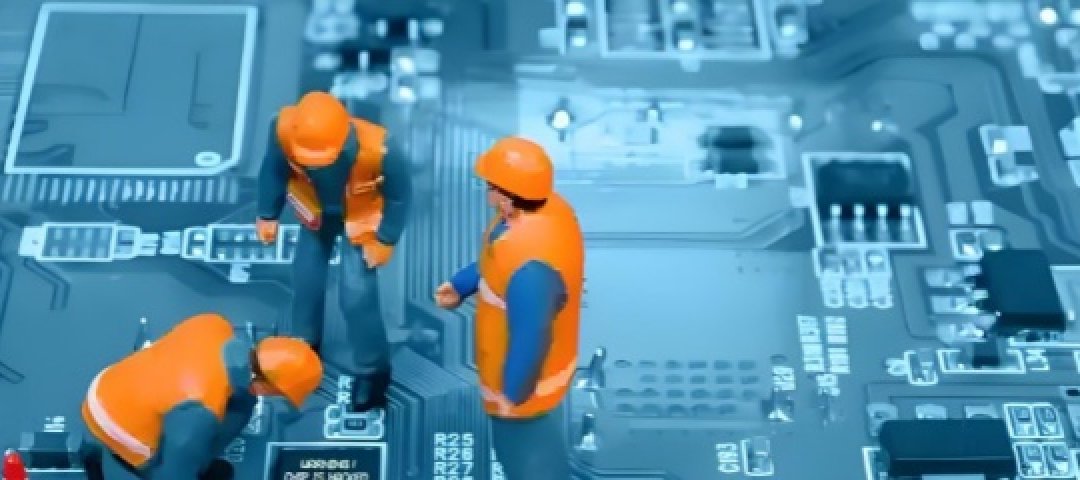Application of MES Systems in PCBA Factories
With the advancement of Industry 4.0 and the rapid development of intelligent

In the PCBA processing industry, a factory's successful case not only demonstrates its technical expertise but also reflects its comprehensive capabilities throughout the production process. A complete customer case starts from product design, goes through prototyping, verification, production optimization, and ultimately to mass production delivery. The factory's performance at every stage is crucial. This article will showcase a real-life example to illustrate how a PCBA factory assists a customer in achieving success from design to mass production.
1.Customer Requirement Analysis and Preliminary Circuit Card Assembly Design
The work of a PCB Assembly factory typically begins with in-depth communication and requirement analysis with the customer. At this stage, the factory collaborates closely with the customer’s engineering team to clarify product requirements, functional specifications, and target markets.
(1)Requirement Assessment: The printed circuit board assembly factory first understands the functional needs of the customer’s product, including circuit design, component selection, and size constraints. Through discussions with the customer, the PCB Board assembly factory helps optimize the design to ensure feasibility and cost control in subsequent production stages.
(2)Preliminary Design Optimization: After gathering customer requirements, the PCB and Assembly factory’s engineers perform an initial design evaluation and provide suggestions for improvements. For example, to account for soldering complexity and component layout, the factory may recommend modifying certain design details to reduce production costs or improve product reliability.
This early-stage communication and design optimization ensure the project progresses smoothly to the prototyping phase.
2.Prototyping and Testing
After completing the design phase, the pc board assembly factory begins prototype production and conducts essential functional tests and quality validations. This stage is critical to the project’s success, as the factory continuously adjusts to ensure the prototype meets customer requirements.
(1)Prototype Production: Using the design files provided by the customer, the assembled circuit board factory starts manufacturing prototype boards. High-precision production equipment and stringent process controls ensure that every prototype meets design standards.
(2)Functional and Performance Testing: Once prototypes are complete, the factory conducts rigorous functional tests to ensure all circuits work as intended. Testing includes electrical performance, voltage endurance, and temperature stability as needed.
The results from this stage directly influence the feasibility of mass production. The factory must adjust and refine based on testing feedback.
3.Process Optimization and Small-Batch Production
After the prototypes pass testing and receive customer approval, the printed circuit board and assembly factory moves to process optimization and small-batch production. This ensures the stability of the production process and product quality.
(1)Process Optimization: Based on feedback from the prototyping stage, the factory adjusts production processes to improve efficiency and reduce costs. For example, settings on automated equipment or soldering techniques may be refined to meet the highest quality standards in production.
(2)Small-Batch Production: This stage validates the stability of production processes and equipment. The factory further optimizes equipment configurations, workflows, and quality control methods, ensuring consistency and high quality during large-scale production.
Success in this phase lays the foundation for subsequent mass production by resolving potential issues early.
4.Mass Production and Quality Control
Following the success of small-batch production, the PCBA factory enters the mass production phase. The success of this stage relies heavily on prior optimization and testing, with the factory ensuring every PCBA meets customer requirements.
(1)Scaled Production: During mass production, the assemble pcbs factory utilizes automated production lines and efficient scheduling systems to ensure stable and efficient processes. Flexible production planning enables the factory to handle large orders and deliver on time.
(2)Stringent Quality Control: To guarantee product quality during mass production, the factory implements strict quality control measures, including in-line testing, continuous monitoring, and finished product inspections. Every assembly of printed circuit boards undergoes rigorous checks to ensure it is defect-free.
Every detail during mass production directly impacts the final quality of the customer’s product. The factory’s lean production and quality control systems are critical at this stage.
5.Ongoing Customer Support and Continuous Optimization
After mass production, the pcb circuit board assembly factory’s role extends beyond delivering products, offering ongoing support and optimization services. These services help customers maintain long-term product stability and adapt to market changes.
(1)After-Sales Support and Service: The factory continues to improve production processes and product quality based on customer feedback. If issues arise during product use, the factory provides timely technical support and services.
(2)Continuous Optimization: To ensure the customer remains competitive, the factory offers ongoing product optimization and periodic technical upgrades. Changes in customer requirements or market demand may necessitate design and production adjustments, and the factory must provide corresponding support.
This long-term collaboration provides value beyond the initial delivery, fostering a strong partnership between the factory and the customer.
Conclusion
The success stories of pcb printed circuit board assembly factories highlight the end-to-end process from design to mass production. Each step demonstrates the factory’s expertise and extensive experience. By closely collaborating with customers, PCBA factories deliver tailored production solutions, ensuring product quality while enhancing production efficiency. From prototyping and process optimization to continuous support after mass production, every step brings added value to customers and drives long-term cooperation between both parties.
16+ years experience and 300+ engineers working with overseas projects
ISO9001:2015, ISO14001, ISO13485, ROHS, and UL
designing, engineering, prototyping, and production and after-sales services
Covered 150+ countries and 3600+ customers
Reply to your inquiry within 1 hours, we provide 7/24 hours support for customers in different time zones
SMT lines+Automatic plug-in production line+Wave Soldingave Lines+Assembly lines